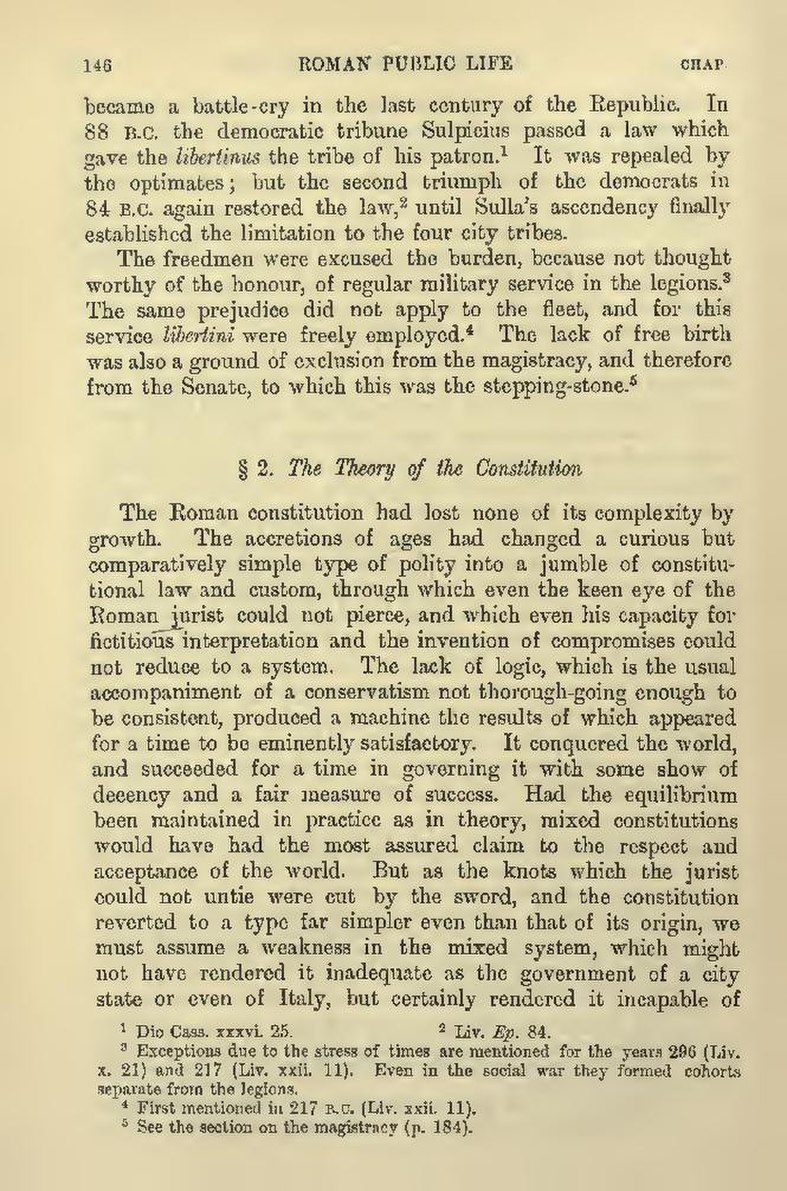became a battle-cry in the last century of the Republic. In 88 B.C. the democratic tribune Sulpicius passed a law which gave the libertinus the tribe of his patron.[1] It was repealed by the optimates; but the second triumph of the democrats in 84 B.C. again restored the law,[2] until Sulla's ascendency finally established the limitation to the four city tribes. The freedmen were excused the burden, because not thought worthy of the honour, of regular military service in the legions.[3] The same prejudice did not apply to the fleet, and for this service libertini were freely employed.[4] The lack of free birth was also a ground of exclusion from the magistracy, and therefore from the Senate, to which this was the stepping-stone.[5] § 2. The Theory of the Constitution
The Roman constitution had lost none of its complexity by growth. The accretions of ages had changed a curious but comparatively simple type of polity into a jumble of constitutional law and custom, through which even the keen eye of the Roman jurist could not pierce, and which even his capacity for fictitious interpretation and the invention of compromises could not reduce to a system. The lack of logic, which is the usual accompaniment of a conservatism not thorough-going enough to be consistent, produced a machine the results of which appeared for a time to be eminently satisfactory. It conquered the world, and succeeded for a time in governing it with some show of decency and a fair measure of success. Had the equilibrium been maintained in practice as in theory, mixed constitutions would have had the most assured claim to the respect and acceptance of the world. But as the knots which the jurist could not untie were cut by the sword, and the constitution reverted to a type far simpler even than that of its origin, we must assume a weakness in the mixed system, which might not have rendered it inadequate as the government of a city state or even of Italy, but certainly rendered it incapable of
- ↑ Dio Cass. xxxvi. 25.
- ↑ Liv. Ep. 84.
- ↑ Exceptions due to the stress of times are mentioned for the years 296 (Liv. x. 21) and 217 (Liv. xxii. 11). Even in the social war they formed cohorts separate from the legions.
- ↑ First mentioned in 217 B.C. (Liv. xxii. 11).
- ↑ See the section on the magistracy (p. 184).
